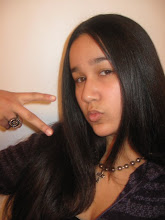Ms. Peifer
10 IB - Hour 5
3 March 2009
Macbeth LRJ #5
There are a couple prominent themes that play out in the fifth act of Macbeth. These themes include karma, and vengeance. Karma plays profound part in the fifth act because of the way the truth finally catches up to Macbeth and Lady Macbeth. At the beginning of the fifth act in the first scene, Lady Macbeth is talking in her sleep because of, "slumbery agitation" and the Gentlewoman and the Doctor are present to hear her give quite incriminating testimonies pertaining to the slayings of Duncan, Banquo, and the Macduff family. These testimonies include, "What need we to fear who knows it, when none can call our power to account? Yet who would've though the old man [Duncan] to have so much blood in him?" (Shakespeare, Macbeth, 5, i, 40-41) and "The Thane of Fife [Macduff] had a wife. Where is she now?" (Shakespeare, Macbeth, 5, i, 42-43) and "Wash your hands, put on your nightgown; look not so pale! I tell you yet again, Banquo's buried. He cannot come out on 's grave" (Shakespeare, Macbeth, 5, i, 63-64). Vengeance is all but apparent when Malcolm returns to Scotland, leading a mass army of Englishmen to siege Macbeth's castle, as well when Macduff challenges Macbeth to a duel and exclaims, "That way the noise is. Tyrant, show thy face! If thou be'st slain, and go with no stroke of mine, my wife and children's ghosts will haunt me still" (Shakespeare, Macbeth, 5, vii, 15-17).
One image pattern that is brought up quite frequently in the fifth act in particular is derived from the witches' prophecies, "Be bloody, bold, and resolute; laugh to scorn the power of man, for none of woman born shall harm Macbeth" (Shakespeare, Macbeth, 4, i, 79-81) and "Macbeth shall never vanquished be until the Great Birnham Wood to Dunsinane Hill shall come against him" (Shakespeare, Macbeth, 4, i, 92-94). These images of "a man not being born of woman" and "Birnham Wood moving to Dunsinane Hill" are important because despite the impossible-sounding nature of the images, they play a significant part in Macbeth's downfall. At first, when the various thanes of Scotland desert their stations, Macbeth boastfully exclaims, "Let them fly all! Till Birnham Wood remove to Dunsinane, I cannot taint with fear. What's the boy Malcolm? Was he not born of woman? The spirits that know all mortal consequences have pronounced me thus: 'Fear not, Macbeth. No man that's born of woman shall e'er have power upon thee'" (Shakespeare, Macbeth, 5, iii, 1-7). Then when Young Siward challenges Macbeth, Macbeth easily slays him, and Macbeth arrogantly says, "Thou wast born of woman. But swords I smile at, and weapons laugh to scorn, brandished by a man that's of a woman born" (Shakespeare, Macbeth, 5, vii, 12-14). Shortly afterwards when Macduff challenges Macbeth, Macbeth scoffs, "I bear a charmed life, which must not yield to one of woman born" (Shakespeare, Macbeth, 5, viii, 12) however, Macduff retorts, "Despair thy charm and let the angel whom thou still hast served tell thee, Macduff was from his mother's womb untimely ripped" (Shakespeare, Macbeth, 5, viii, 13-16).

No comments:
Post a Comment